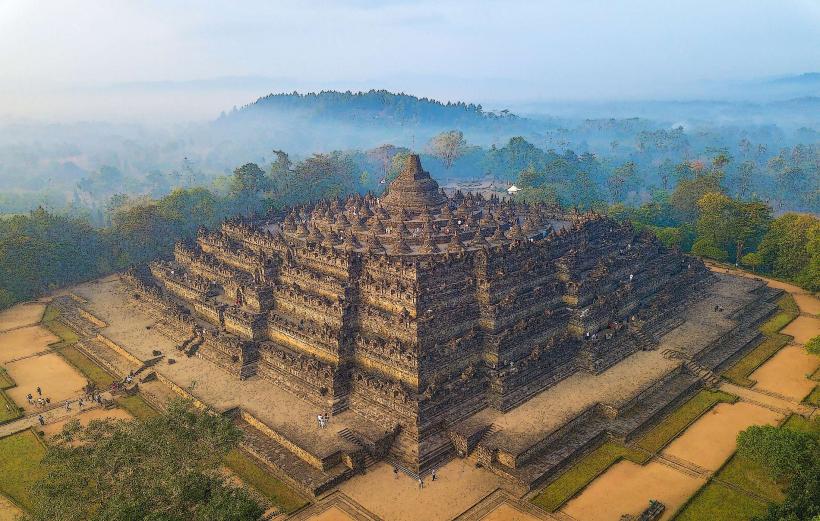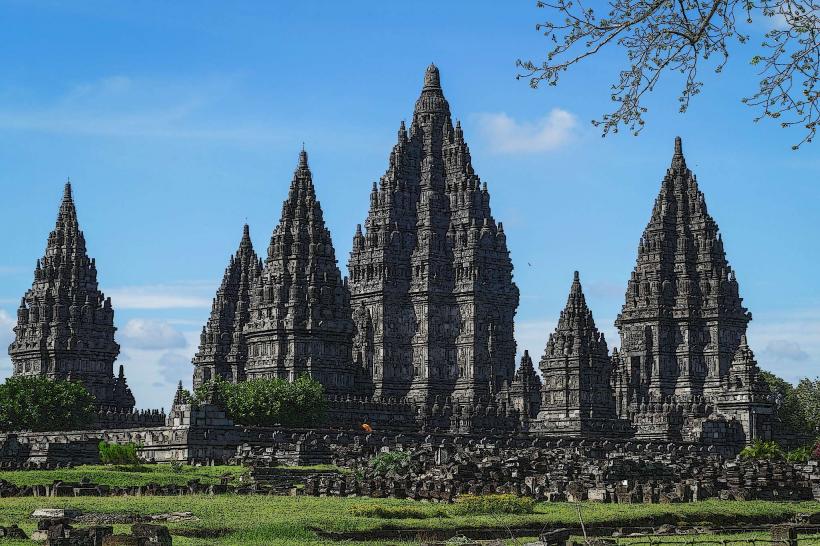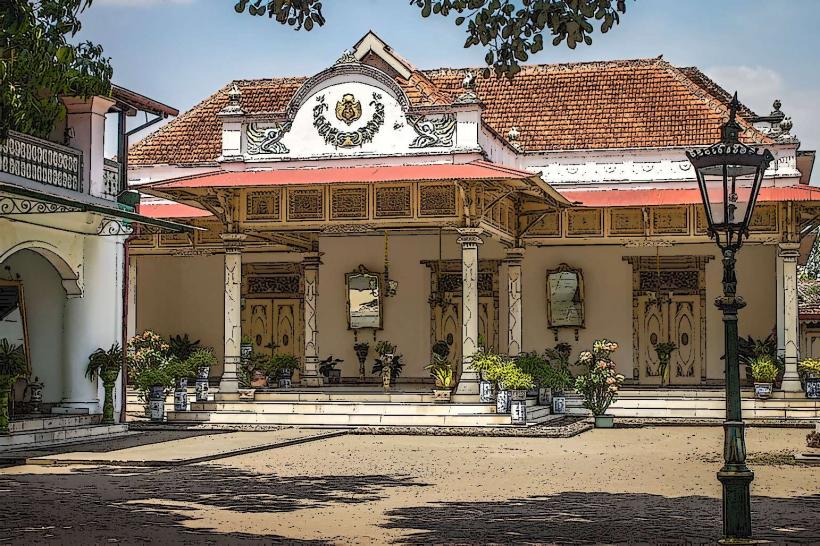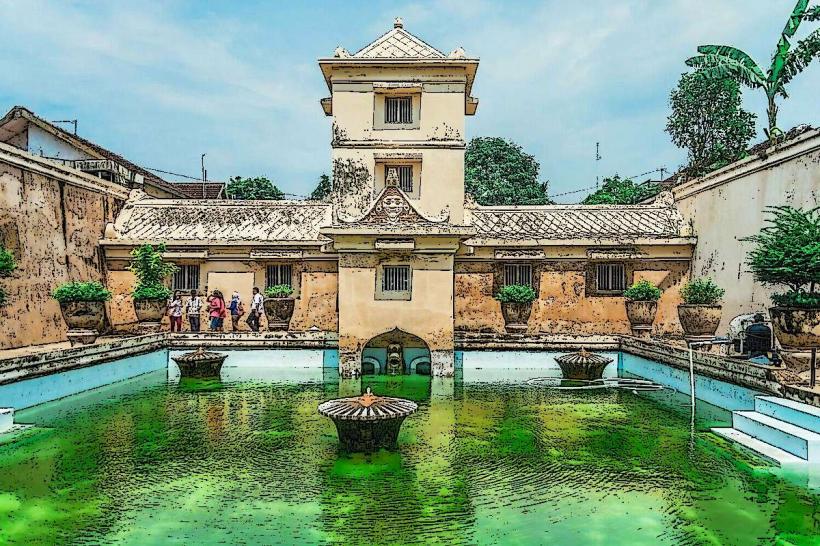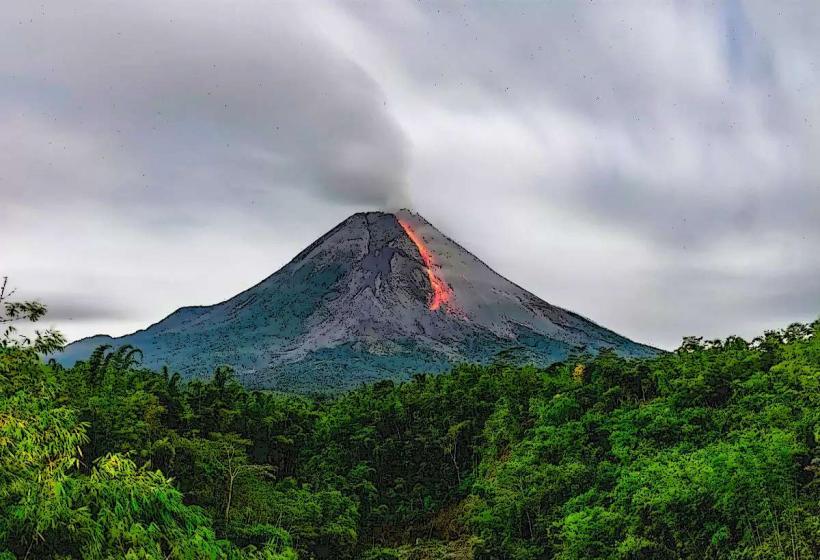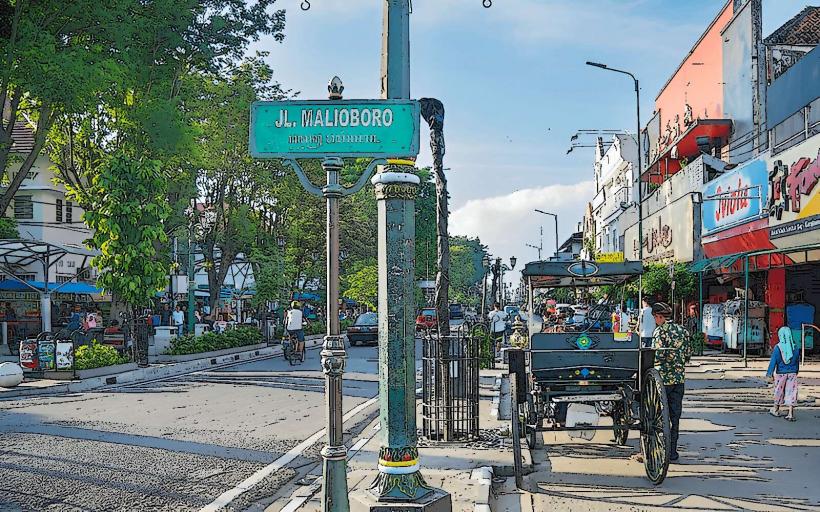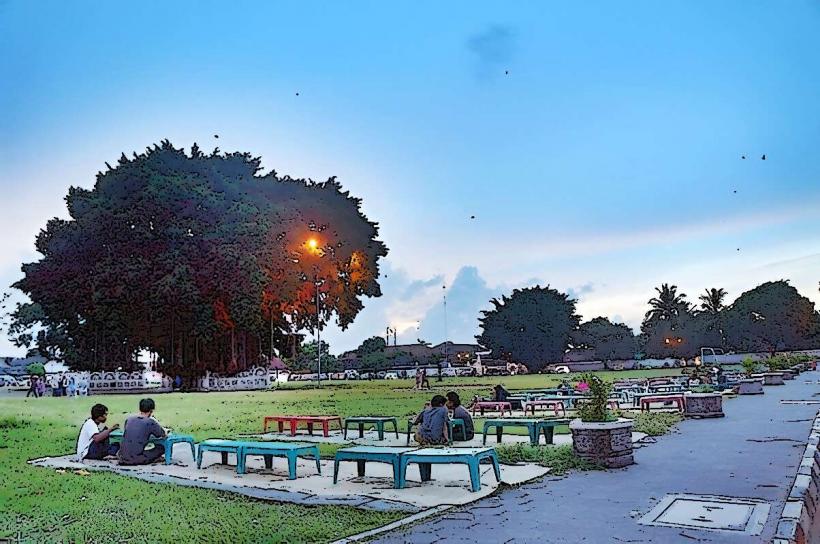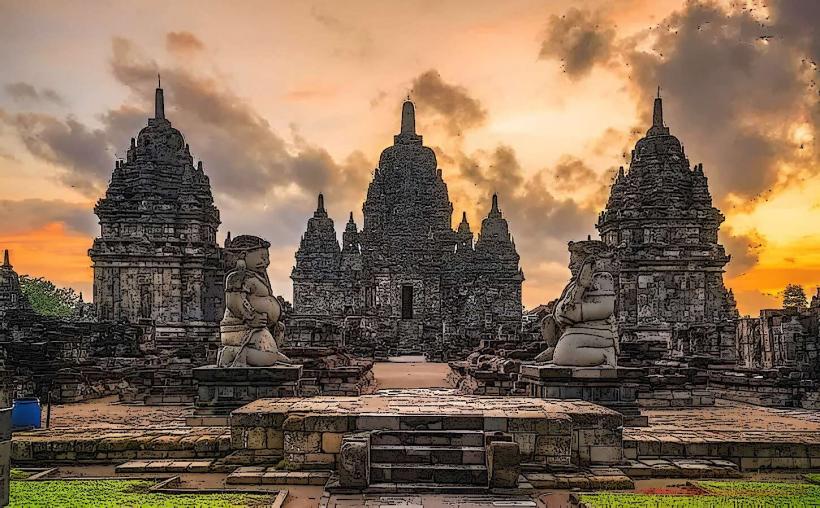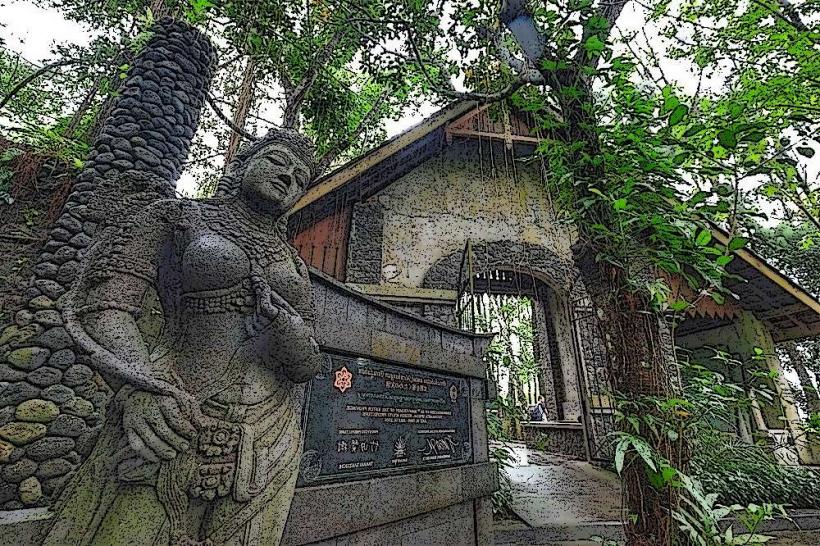Information
Landmark: Ratu Boko TempleCity: Yogyakarta
Country: Indonesia
Continent: Asia
Ratu Boko Temple, Yogyakarta, Indonesia, Asia
Ratu Boko Temple (also known as Candi Ratu Boko) is an ancient archaeological site located in Central Java, near the city of Yogyakarta, Indonesia. It is a significant historical and cultural landmark, known for its expansive ruins, which are believed to be remnants of a royal palace complex rather than a traditional temple. The site is often associated with the Mataram Kingdom and provides insight into the architectural and cultural heritage of the region.
Overview
- Location: Ratu Boko Temple is situated about 3 kilometers east of Prambanan Temple, another famous ancient site, and approximately 12 kilometers from Yogyakarta. The temple complex sits on a hilltop at an elevation of about 196 meters above sea level, offering a panoramic view of the surrounding area.
- Name: The name "Ratu Boko" translates to "King's Gate" in Javanese, suggesting the site’s association with royalty. However, the exact purpose of the site remains uncertain, with some scholars speculating it could have been a palace complex, while others believe it may have been a religious or ceremonial site.
Historical Significance
Construction Period:
- The complex is believed to have been constructed during the 7th to 8th centuries, during the height of the Mataram Kingdom. The site was likely built under the rule of King Balitung or his successors, though its exact origins are still debated.
- The architecture and design of the site reflect the influence of Hindu-Buddhist traditions, which were prevalent in the region during that time.
Mataram Kingdom:
- The Mataram Kingdom was a powerful kingdom that ruled over the region of Central Java from the 8th to 10th centuries. The kingdom is also known for building the nearby Prambanan Temple and Borobudur Temple.
- Ratu Boko Temple may have served as a residence or palace for the royal family, a ceremonial site, or a defensive fortification to protect the kingdom.
Architectural Features
Main Structures:
- The Ratu Boko Temple complex consists of several key structures, including gates, platforms, and pavilions that showcase distinct architectural styles.
- The main gate or entrance is one of the most notable features of the site, with large stone pillars and an intricate design.
- The complex includes several terraces, baths, and structures that may have served as royal living quarters or ceremonial spaces.
- The palace-like layout and the use of stone carvings suggest that the site was once a place of significance for the region’s elite.
Pavilions and Platforms:
- There are several stone platforms scattered throughout the site, which may have been used for rituals, offerings, or public gatherings.
- The elevated nature of the site allowed for a strategic view of the surrounding area, making it ideal for both ceremonial purposes and defense.
- The main structure features large stone blocks arranged in a way that hints at the grandeur and importance of the site in its prime.
Religious Influence:
- While Ratu Boko Temple is not a traditional Hindu or Buddhist temple like nearby Prambanan or Borobudur, it does exhibit religious influences, particularly in its architecture and layout.
- The site may have been used for royal rituals, possibly involving the worship of Hindu deities, as the region was deeply influenced by Hinduism and Buddhism during the time it was constructed.
Visiting Ratu Boko Temple
Attractions and Highlights:
- Ruins and Architecture: The ruins of the site, with their distinct gateways, terraces, and platforms, provide a fascinating glimpse into the past. Visitors can explore the various sections of the complex and observe the remnants of what was once a thriving royal site.
- Scenic Views: Ratu Boko Temple offers spectacular panoramic views of the surrounding countryside, including a view of the nearby Prambanan Temple and Mount Merapi. The temple is particularly famous for its sunset views, making it a popular spot for photography.
- Reliefs and Carvings: Visitors can also view intricate stone carvings that adorn the gates and walls of the site, reflecting the artistic heritage of the time.
- Exploration: Walking through the temple complex, visitors can explore the various buildings and remnants, providing an opportunity to learn more about the ancient Javanese architecture and culture.
Opening Hours and Accessibility:
- Ratu Boko Temple is typically open from 6:00 AM to 6:00 PM daily. However, it’s recommended to visit early in the morning or late in the afternoon to avoid the heat and to experience the site at its most beautiful during sunrise or sunset.
- The site is accessible via public transport or private vehicles from Yogyakarta or nearby towns. There is an entrance fee for tourists, which helps with the preservation of the site.
Nearby Attractions:
- Visitors to Ratu Boko Temple can also explore the nearby Prambanan Temple and Plaosan Temple, both significant Hindu temples in the region. Borobudur Temple, another UNESCO World Heritage site, is located a bit further away but is also a key attraction for those interested in ancient temples.
- The city of Yogyakarta, with its rich cultural heritage and historical landmarks, is just a short drive away from the temple, offering a wealth of attractions to explore.
Conclusion
Ratu Boko Temple is a mysterious and fascinating site that offers valuable insights into the history and culture of Central Java. Though its exact function remains a subject of debate, the site’s beautiful ruins, historical significance, and scenic views make it a must-visit for those interested in Javanese heritage and architecture. Whether you're exploring the ancient palace ruins, admiring the stone carvings, or simply enjoying the breathtaking sunsets, Ratu Boko Temple is a place where history and nature come together in a remarkable way.

